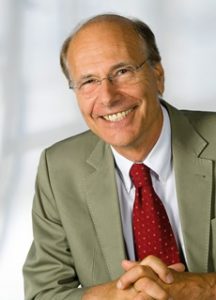 Are you still looking for an appropriate present to make Christmas 2017 a very special experience ? Today we would like to present a another great book to you, which is gripping as well as very witty: “Live right, live longer. 5 things we can do to stay healthy.” („Richtig leben, länger leben. 5 Dinge, die wir tun können, um gesund zu bleiben“) by Prof. Dr. Heinz Ludwig. In this easily readable non-fiction book the university professor, who was Head of Oncology at the Wilhelminenspital in Vienna for many years, is an internationally renowned cancer researcher and has won many awards, has written a summary of his lifelong work with patients.
Are you still looking for an appropriate present to make Christmas 2017 a very special experience ? Today we would like to present a another great book to you, which is gripping as well as very witty: “Live right, live longer. 5 things we can do to stay healthy.” („Richtig leben, länger leben. 5 Dinge, die wir tun können, um gesund zu bleiben“) by Prof. Dr. Heinz Ludwig. In this easily readable non-fiction book the university professor, who was Head of Oncology at the Wilhelminenspital in Vienna for many years, is an internationally renowned cancer researcher and has won many awards, has written a summary of his lifelong work with patients.
Like most great human beings he is both modest and lucid: he writes about meetings with patients who have impressed him, about decisions of patients which have surprised and convinced him and he is always in dialogue with them, never above them. And yet in spite of all sensitivity and emotional sympathy with the fate of his patients, Ludwig always remains a scientist and has well-founded evidence for all his tenets in the form of studies and scientific explanations.
In his book he summarises the results of his experience and studies under five headings which all begin with ´L`:
Love Laugh Learn Laufen (Run) Leichter essen (Eat lighter food).
“Love” means for him social contacts, family ties, also the love of an activity, a hobby or a passion. Furthermore, he relates about Roseto, a community of Italian emigrants in the USA, who kept up their ties for two generations and at that time were exceptionally healthy and enjoyed a long life despite their nutritional sins. When, ultimately, they had adapted to American customs and the community had broken up, their health corresponded to the general American standard.
In some detail, Ludwig describes the statistical value of steady relationships for health and into the significance of reconciliation within the family in the course of cancer illnesses. He also describes how important communicating the diagnosis is for the psyche of the patients and their relations.

In the book “Laughing” symbolises the attitude to life in general, the ability to accept one’s fate and to make the best out of it. A positive basic attitude, kind fellow human beings who offer encouragement are essential factors for health.
It has been proved that laughing has positive effects on the body, probably because it combats the stress which damages the protective inner cell layer in the blood vessels and, in the worst case scenario, can lead to a heart attack. We breathe more deeply when we laugh, which provides us with more oxygen and better aeration of the bronchial tubes. Over one hundred muscles are activated by laughing and the heart-circulation system is stimulated.
It is important not to equate this positive attitude to life with what Ludwig calls “the malign dogma of positive thinking”: the naive and irresponsible thought that cancer can be healed by “thinking positively” leads to a lot of frustration and feelings of guilt amongst patients. On the other hand, the feeling of gratitude, concentrating on pleasant things and appreciating specific things are important for Ludwig.
In this context he cites advice which human beings would give to their fellow human beings at the  end of their life (abbreviated here):
end of their life (abbreviated here):
1. Do what you like doing
2. Allow yourself to be the person who you are
3. Devote more time to your friends
4. Distinguish better between work and leisure and give the latter more space.
Under the term “Learning” he summarises everything which trains our mental abilities. In this regard Ludwig refers to studies which prove that the potential for health and a long life increase with a higher level of education. The learning theme, in his opinion, also includes learning about oneself and all areas which affect us directly: Politics, Science, Business and Economics, Art, Culture, Animals and Plants. As long as we devote ourselves to these topics, we remain healthy – this is his conclusion.
Being better informed and posing questions also helps in a banal way to preserve our health: A patient who informs himself will ask the doctor better questions, gather more opinions and new therapies which are still in the research phase may be suggested to him. He will also profit more from the treatment because he understands the context better and maybe follows the therapy in a more adept way. This is a practician speaking who knows that doctors are not omniscient and faultless supermen or superwomen but that they also profit from the interaction with the patient.
“Laufen (Run)” means every type of movement. It is meanwhile an acknowledged fact that regular exercise (at least three times per week for half an hour) not only improves the quality of life but also lengthens a person’s lifespan. Being overweight “leads to more secretion of different messenger substances, which increases the growth of certain cells and this in turn increases the risk of cancer”. Exercise not only reduces the excess weight but also stimulates the powers of resistance, lowers the blood sugar level, improves our memory and probably even raises the ability of the body to repair defects in the genetic substance, and so on …

The last large section is devoted to the topic “Leichter essen (Eat lighter food)“. Here Ludwig deals principally with the psychic obstacles to healthy nutrition, our inner resistance. Because meanwhile virtually everyone knows what healthy eating involves:
less meat, industrially processed refined foodstuffs and convenience food, artificial sweeteners, large quantities of dairy products,
and instead fruit and vegetables, whole grain products, nuts, herbs and spices.
In a convincing plea for “healthy realism”, Ludwig presents plausible arguments for serious rethinking in connection with nutrition, in the section relating to cancer-promoting foodstuffs, he is very specific: insufficiently cooked meat, oil heated – sometimes repeatedly – to high temperatures, drinking water with a high nitrate content, nitrosamines (can occur in beer, fish, cheese and cured sausage). He also points out, however, that frequent contradictions occur here and that – according to the current state of scientific research, it is simply recommendable to follow a diet which is as varied as possible and involves as little processed food as possible. As far as smoking and alcohol consumption is concerned, however, there is clear evidence that both are damaging to health.
By way of conclusion, it may be said that this book is recommendable to any reader who wants to find out more about the current state of medical research and a healthy lifestyle. In particular, it is highly suitable for all those who are interested in the relationship between doctor and patient. I have rarely heard a doctor speaking so openly about his experiences, with so much respect for the patients and so much interest in the solutions which they find. This aspect in itself makes the book extremely impressive and worthwhile reading. The human factor is what makes the difference!
Prof. Dr. Heinz Ludwig, Live right, live longer 5 things we can do to stay healthy. (Richtig leben, länger leben. 5 Dinge, die wir tun können, um gesund zu bleiben) Editon a, Vienna 2017, 252 p.
